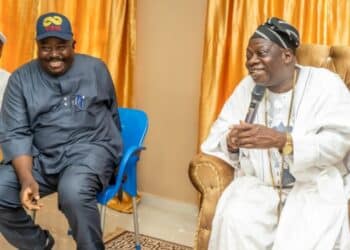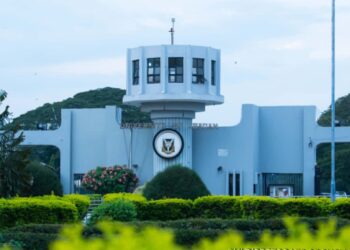The co-chairman of the Bill and Melinda Gates Foundation, Bill Gates, said the execution needs of the Economic Recovery and Growth Plan, propelled by President Muhammadu Buhari in 2017, don’t mirror Nigerians’ needs.
Gates, speaking at the Aso Rock Presidential Villa in Abuja Thursday at the special National Economic Council on Investment in Human Capital, with the subject, “Human Capital Investment in Supporting Pro-poor and Economic Growth Agenda,” said however, that the ERGP identifies investing in people as one of its three key goals, its “execution priorities don’t fully reflect people’s needs, prioritizing physical capital over human capital”.
He stressed that investment in infrastructure and competitiveness must involve investments in people.
“To anchor the economy over the long term, Investments in infrastructure and competitiveness must go hand in hand with investments in people. People without roads, poets and factories can’t flourish. And roads, ports and factories without skilled workers to build and manage them can’t sustain an economy,” he said.
Gates said however Nigeria has unmatched financial potential, what is the fate of such potential relies upon the decisions made by Nigerian pioneers, saying “The most important choice you can make is to maximize your greatest resource, the Nigerian people. Nigeria will thrive when every Nigerian is able to thrive.”
He said if the administration does not put resources into individuals’ wellbeing, training and openings, there would be a sharp breaking point to how the nation could develop.
On health, he said “Nigeria is one of the most dangerous places in the world to give birth, with the fourth worst maternal rate in the world ahead of only Sierra Leone, Central African Republic and Chad. One in three Nigerian children is chronically malnouriahed.
“I believe the Nigerian primary health care system is not adequately funded. But it also doesn’t get the most out of its current funding…More transparency would lead to more accountability which would strengthen governance, leadership and management which would improve quality across the board.”
Gates said however Nigeria has recorded in polio inoculation, the government should seek after human capital advancement with a similar force to accomplish the coveted outcomes.
He said Nigerian government’s income “as a percentage of its GDP is by far the lowest in the world, at six percent. “That makes investing in your people difficult”.
He said his establishment was working with the Nigerian Governors Forum to enable states to track inside produced income.
Gates said his establishment had submitted over $1.6 billion in Nigeria up until this point and intended to expand its dedication.
He said Nigeria would flourish better with solid interest in wellbeing and training, as opposed to concentratile on physical infrastructure,l to the weakness of human capital improvement
Gates said however the World Bank’s World Development Report demonstrated direct connection between the level of training and changes in work, efficiency and wages, Nigeria’s case demonstrated that half of country’s kids couldn’t read and compose.
The administrator, Dangote Foundation, Aliko Dangote, said Nigeria must organize interests in the wellbeing and instruction and nearby other basic zones like framework to have the capacity to contend comprehensively.
Dangote told journalists after the gathering that he told the NEC that there was a requirement for the private part to set aside one percent of their benefits to help essential medicinal services advancement and other basic undertakings in the nation.
Kaduna State Governor Nasir El-Rufai said Gates did not require an audit of the ERGP, but rather recommended a planning framework with needs set out obviously to address human capital advancement challenges.
“The truth is most Nigerians think that the dividend of democracy amounts to see a road pass by your house, water or electricity. Dangote and Gates reminded all of us today, is that there is something far more Important, than physical infrastructure – roads, electricity, water and that is our investing in the people.
Nigeria is going to be 411 million people by 2050. Today, more than half of our population is very young and unless we try to educate them by ensuring that they are healthy,” El-rufai said.
VP Yemi Osinbajo, who presided the session, said Nigeria had solid financial development and advancement aspirations, exemplified in the ERGP.
He said all the grand desire in the arrangement must be accomplished through the decided utilization of human aptitude and exertion.
“And for that effort to be meaningful and productive it has to come from people who are healthy, educated, and who are, and feel empowered. It is this realisation that has helped ensure that one of the primary planks of the ERGP is ‘Investing in our people’. And it is for this reason that we are expanding the reach and quality of our healthcare, through the National Health Insurance Scheme (NHIS); and working to guarantee basic education for all persons, whilst also upgrading and modernising the quality of secondary and post-secondary education.
“And because this is the 21st century, we know that is also important to ensure that our young people are being prepared for the economies of the future, not the past. This means that STEM education is critical, and that technology must lie at the heart of every one of our educational offerings,” he said.
Osinbajo watched that high oil costs and financial development of earlier years had neglected to convert into a superior life for generally Nigerians.
He said fantastic defilement forestalled interests in medicinal services and instruction and framework and also indecently victimized government arrangements of the greater part of their expected effect.
He said the present organization knew about Nigeria’s issues and arranged to handle the difficulties Dangote Foundation and additionally Bill and Melinda Gates Foundation laid out.
The VP portrayed the administration’s Social Investment Program as key segment of the Economic Recovery and Growth Plan.
Speaking on behalf of the Nigerian Governors Forum, Ebonyi State Governor, Dave Umah, said they spoke to the National Assembly to alter pertinent laws “so that we can access the health funds of about 50-50 contributions required by states to access the funds.
“It’s quite challenging because of other contending issues like security, empowerment of women and youth, infrastructure decay and other developmental strands of the various l governance of the state.”








